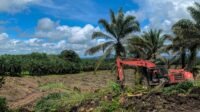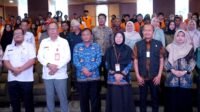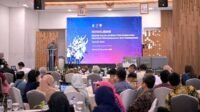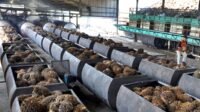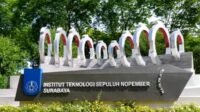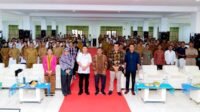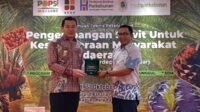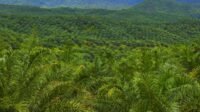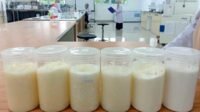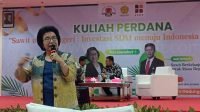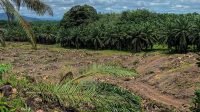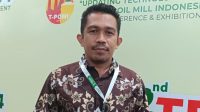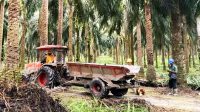PALMOILMAGAZINE, BANDUNG — The Plantation Fund Management Agency (BPDP) is intensifying its efforts to support innovation and sustainable palm oil research nationwide. According to Arfie Thahar, Head of the BPDP Service Program Division, the agency actively provides funding opportunities for strategic research in the palm oil sector through an annual proposal selection system.
“Proposals go through a rigorous screening process. Submissions typically happen early in the year, and the review and approval process can take up to eight months,” Arfie said at a recent event in Bandung attended by Palmoilmagazine.com.
The currently funded projects are outcomes of the 2024 research proposal selection, while the selection for 2026 funding is underway in 2025.
BPDP’s research priorities span seven key areas: energy; materials and chemicals; food and health; cultivation (including land and soil); post-harvest processes; environmental, socioeconomic, and information technology sectors.
In the energy sector, one major initiative involves funding the development of local alternatives to imported methanol for biodiesel production. “Methanol is still largely imported at a high cost. We’re funding R&D to find a local catalytic substitute to make the process more efficient and affordable,” Arfie explained.
In the health sector, BPDP supports the development of detection tools to analyze palm oil content. One example is a simple, user-friendly detection device showcased by TCP, designed for practical use in the industry.
For cultivation, research is focused on creating oil palm varieties resilient to drought and disease. “We aim to develop plant strains that are more adaptive to climate change and varied soil conditions,” Arfie added.
Industry-research collaboration is a cornerstone of BPDP’s innovation strategy. A notable case involves research into producing PVC stabilizers from palm oil, replacing imported pine resin. This initiative includes cooperation with PT Timah as a potential industrial user.
“From the outset, we involve industry partners to ensure our research leads to implementable innovations—not just academic papers,” Arfie emphasized.
What’s more, the technologies developed through BPDP-funded research are freely available to industry players. “We want to maximize adoption. Companies are welcome to use these innovations without paying any licensing fees,” Arfie stated.
With this approach, BPDP aims to accelerate the transformation of Indonesia’s palm oil sector into one that is more innovative, efficient, and sustainable, while also bridging the gap between academic research and real-world industrial needs. (P2)



